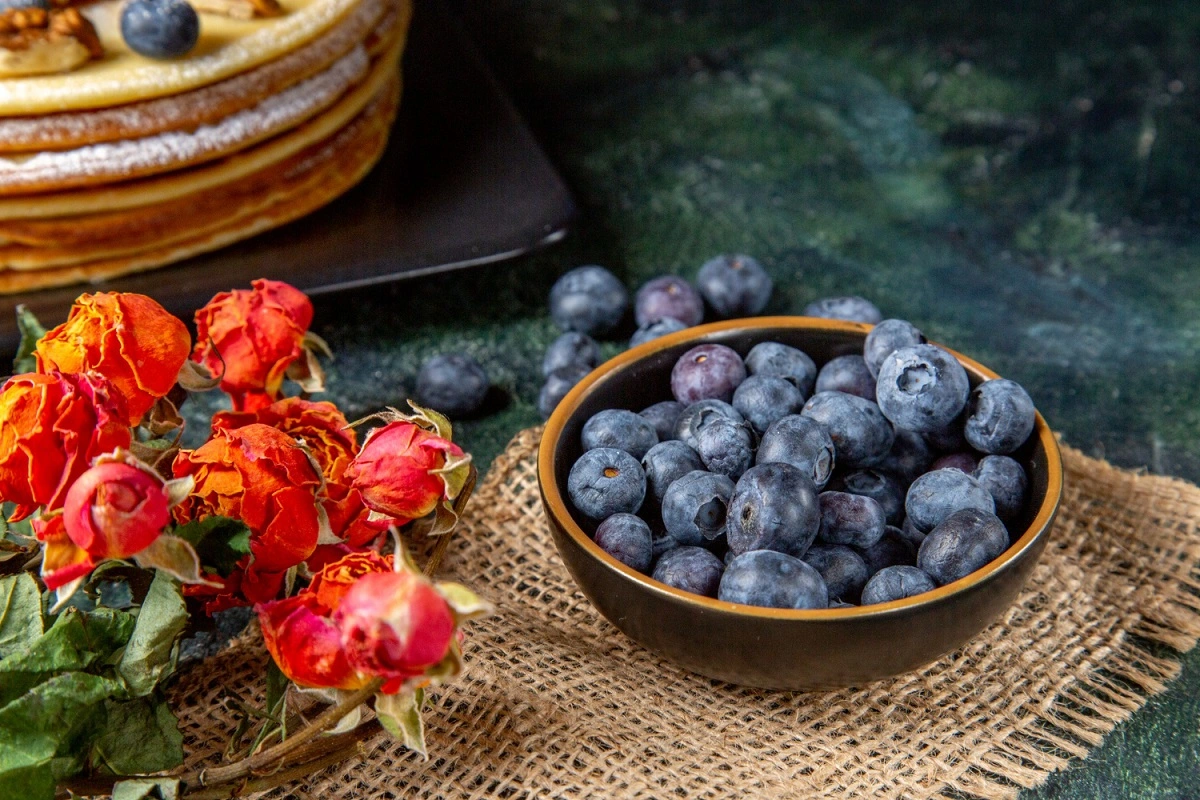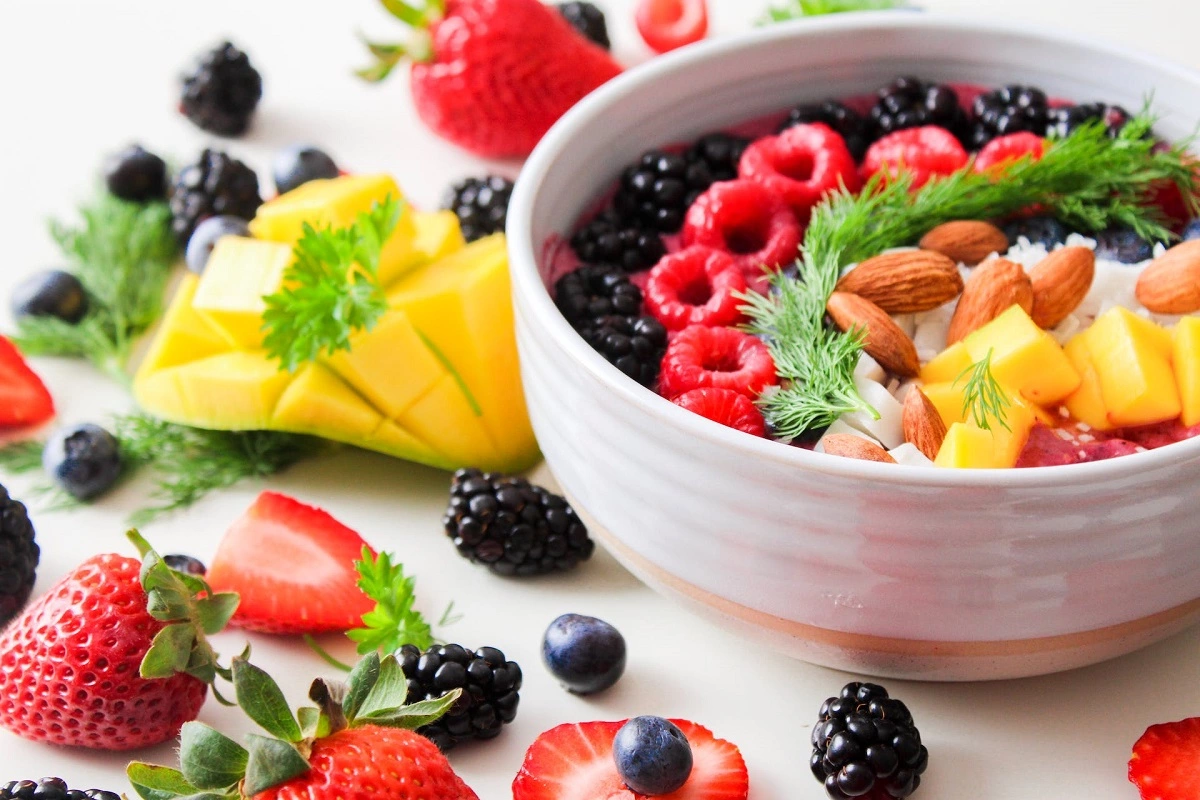Introduction to Blueberries in France
Overview of Blueberry Cultivation in France
Blueberries, those delightful little bursts of flavor, have found a sweet spot in France’s agricultural tapestry. While not native to the region, these berries have adapted splendidly, thanks to France’s innovative farming techniques and a keen interest in diversifying agriculture. From small family-owned farms to larger agricultural enterprises, blueberry cultivation in France is a growing trend, blending tradition with modern agronomy.
Climatic and Geographical Advantages for Blueberries in France
France’s diverse climate and geography offer a unique advantage for blueberry cultivation. The cooler regions, like Brittany and Normandy, provide the perfect chill for these berries to thrive. On the other hand, the sun-drenched fields of southern France offer a different, yet equally nurturing environment. This geographical diversity allows for a range of blueberry varieties to flourish, each with its own distinct flavor and characteristics.
Varieties of Blueberries Grown in France
In the realm of French blueberries, variety is indeed the spice of life. The country cultivates several types, including the popular Duke and Bluecrop varieties. Each variety brings its own unique twist to the table – some are sweeter, while others boast a tangy zing. Consequently, this diversity not only caters to different palates but also significantly extends the blueberry season in France, thereby ensuring a steady supply of these nutritious berries.
Cultural Significance of Blueberries in French Cuisine
Blueberries have waltzed into French kitchens with grace, adding a touch of sweetness to the country’s rich culinary heritage. Whether it’s in a classic tarte aux myrtilles (blueberry tart) or as a fresh addition to a summer salad, blueberries have found their place in French cuisine. Their versatility and health benefits make them a favorite ingredient among chefs and home cooks alike.
Industry Insights and Consumer Trends
Blueberry Production and Yield in France
The French blueberry industry, though not as vast as in some other countries, is marked by its high-quality produce and efficient farming practices. Recent statistics show a steady increase in both the volume and yield of blueberry farms across France, indicating significant growth. This growth is a testament to the country’s commitment to agricultural innovation and sustainable practices. Although France may not top the charts when compared to global giants in blueberry production, it certainly stands out for its premium quality and sustainable farming methods.
Challenges and Opportunities in the French Blueberry Market
Every coin has two sides, and the French blueberry industry is no exception. Farmers face challenges like climate change and market fluctuations, which can affect crop yields and profitability. However, these challenges also open doors to opportunities. There’s a growing trend towards organic blueberry farming and the use of eco-friendly practices, which not only appeal to environmentally conscious consumers but also pave the way for a more sustainable future in agriculture.
Export and Trade Dynamics
France’s role in the global blueberry market is quite intriguing. While the domestic demand for blueberries is strong, the country also plays a significant role in the European berry market. French blueberries are exported to several countries, where they are prized for their quality. The strategic location of France in Europe, coupled with its reputation for fine produce, positions it well in the international trade arena.
Consumer Preferences and Market Trends
In recent years, there’s been a noticeable shift in consumer preferences in France. People are increasingly leaning towards healthier, more natural food options, and blueberries fit this bill perfectly. Explore the health benefits and recipes of green ice cream, including those featuring blueberries. This shift is not just a fleeting trend but a deeper change in lifestyle choices, influencing the market significantly. The demand for blueberries in France is on the rise, not just for fresh consumption but also in processed forms like jams, juices, and desserts.
Sustainable Practices and Organic Farming
Sustainability is the buzzword in the French blueberry industry. Farmers are increasingly adopting organic farming methods, reducing the use of chemical fertilizers and pesticides. This shift not only benefits the environment but also significantly enhances the quality of the blueberries. Furthermore, the move towards sustainable practices is supported by both governmental policies and consumer demand, thereby making it a key focus for the future of blueberry farming in France.
FAQs
What are the Health Benefits of Blueberries?
Blueberries are not just tasty; they’re a powerhouse of nutrition. Packed with antioxidants, vitamins, and fiber, they offer numerous health benefits. Regular consumption can aid in improving heart health, boosting brain function, and even helping in managing diabetes. Their antioxidant properties also make them great for skin health. It’s no wonder these little berries are often labeled as a superfood!
- Q1: How are Blueberries Used in French Cuisine?
- French cuisine, known for its finesse, has embraced blueberries with open arms. These berries are commonly used in desserts like tarte aux myrtilles (blueberry tart), clafoutis, and sorbets. They’re also making their way into savory dishes, adding a unique flavor to sauces and salads. Discover more about delicious and healthy twists on classic recipes that incorporate blueberries. The versatility of blueberries allows them to be a delightful addition to both traditional and modern French dishes.
- Q2: What are the Best Conditions for Growing Blueberries in France?
- Blueberries thrive in well-drained, acidic soil with a pH between 4 and 5.5. They require a certain amount of chill hours for optimal fruiting, which varies depending on the variety. In France, regions with cooler climates like Brittany and Normandy provide ideal conditions for blueberry cultivation. However, with the right soil amendments and care, blueberries can also be grown successfully in other parts of the country.
- Q3: How has the Blueberry Market in France Evolved Over the Years?
- The blueberry market in France has experienced significant growth over the years. Initially, blueberries were not a common crop in France. However, with the introduction of new farming techniques and varieties better suited to the French climate, production has notably increased. Additionally, the growing awareness of the health benefits of blueberries has further contributed to their popularity, both in domestic markets and in exports.
- Q4: What are the Future Prospects for Blueberry Farming in France?
- The future looks bright for blueberry farming in France. With a growing emphasis on sustainable agriculture and organic farming, along with increasing consumer demand for healthy, locally-sourced fruits, the industry is poised for further growth. Advances in agricultural technology and the development of new, more resilient blueberry varieties will likely boost production and efficiency in the coming years.
The Role of French Blueberries in International Cuisine
French blueberries, with their distinct taste and quality, have transcended borders, influencing international cuisine. Chefs around the world are incorporating these berries into a variety of dishes, from classic desserts to innovative savory creations. This section can explore how French blueberries are used in different culinary traditions, highlighting their versatility and global appeal.
Technological Advancements in Blueberry Farming in France
This section can delve into the technological strides made in the cultivation of blueberries in France. For instance, from advanced irrigation systems to sustainable pest control methods, technology plays a crucial role in enhancing the quality and yield of blueberry crops. Moreover, discussing these advancements will not only showcase France’s innovative approach to agriculture but also highlight its commitment to sustainable farming practices.
The Nutritional Profile of French Blueberries
In this section, we can provide a detailed analysis of the nutritional benefits of French blueberries. Discussing their vitamin content, antioxidant properties, and health benefits in depth will offer readers a comprehensive understanding of why these berries are considered a superfood. This section can also compare the nutritional differences between wild and cultivated blueberries.
Blueberry Festivals and Cultural Events in France
France is known for celebrating its produce, and blueberries are no exception. This section can highlight various festivals and cultural events centered around blueberries in France. These events are not only a celebration of the fruit but also an opportunity for farmers, consumers, and enthusiasts to come together and share their passion for blueberries.
The Economic Impact of Blueberry Cultivation in France
Here, we can explore how the blueberry industry contributes to the French economy. This section can include statistics on employment, revenue generated from both domestic sales and exports, and the economic benefits of sustainable blueberry farming. This will provide a broader perspective on the significance of blueberry cultivation beyond its culinary and nutritional value.
Future Trends and Predictions for the French Blueberry Industry
This forward-looking section can discuss the potential future trends in blueberry cultivation and consumption in France. It can cover topics like the impact of climate change on blueberry farming, potential new markets for French blueberries, and predictions for consumer preferences. This will give readers an insight into what the future may hold for this vibrant industry.
The Role of French Blueberries in International Cuisine
French blueberries have made a remarkable journey from local farms to the global culinary stage. Their unique flavor profile has captivated chefs and food enthusiasts worldwide, leading to their incorporation into diverse international cuisines. In Italy, for instance, French blueberries are used to create exquisite sauces accompanying game meats. Similarly, over in Asia, they’re a popular addition to sweet and savory fusion dishes, offering a burst of freshness. Consequently, this global culinary journey not only highlights the versatility of French blueberries but also underscores their growing popularity beyond France’s borders.
Technological Advancements in Blueberry Farming in France
The French blueberry industry has embraced technology, revolutionizing traditional farming methods. Innovations like precision agriculture, which involves using GPS and IoT sensors, allow farmers to monitor crop health and optimize conditions for growth. Drones are employed for aerial surveillance, providing crucial data on irrigation and pest control. Furthermore, these technological advancements not only boost yield and quality but also align with sustainable farming practices. As a result, they ensure the long-term health of blueberry crops in France.
The Nutritional Profile of French Blueberries
French blueberries are not just delicious; they’re a nutritional powerhouse. Rich in vitamins C and K, fiber, and particularly high in antioxidants, they offer numerous health benefits. Moreover, these antioxidants, such as flavonoids, are known for their anti-inflammatory and heart health benefits. Additionally, the high fiber content aids in digestion and weight management. Consequently, this detailed look at their nutritional profile underscores why French blueberries are more than just a tasty treat; they’re a key component of a healthy diet.
Blueberry Festivals and Cultural Events in France
France celebrates its love for blueberries through various festivals and cultural events, turning the spotlight on this beloved fruit. Events like the “Fête de la Myrtille” in regions known for blueberry cultivation celebrate the harvest with tastings, cooking demonstrations, and cultural performances. These festivals not only promote local blueberry varieties but also foster community spirit and celebrate the rich agricultural heritage of France.
The Economic Impact of Blueberry Cultivation in France
The cultivation of blueberries has become an important economic driver in certain regions of France. It provides employment opportunities in rural areas, from farming to processing and distribution. The export of high-quality French blueberries also contributes significantly to the economy, with demand from European and international markets. This economic perspective highlights the importance of blueberry farming in the broader context of France’s agricultural sector.
Future Trends and Predictions for the French Blueberry Industry
Looking ahead, exciting developments await the French blueberry industry. Climate-resilient varieties and sustainable farming practices will likely drive its future growth. The increasing global demand for healthy, natural foods suggests a bright future for French blueberry exports. Additionally, the trend towards organic farming and eco-friendly packaging is likely to shape the industry, aligning with consumer preferences for sustainable and ethical produce.
Conclusion: The Blossoming Future of French Blueberries
Delving into the essence of blueberries in France reveals their significant impact. These fruits blend cultural adaptation, agricultural innovation, and health awareness. French blueberries, known for unique flavors and high quality, enrich local cuisine and have a niche in the global market.
The future of blueberry cultivation in France is promising. A shift towards organic farming and sustainable practices, coupled with agricultural technology, sets French blueberries on a path to new heights. The increasing demand for healthy, natural foods boosts this growth. This ensures blueberries remain integral to French agriculture and cuisine.
Blueberries in France adapt well to various climates and soils, indicating potential for more cultivation. This adaptability, combined with varietal research, allows them to thrive and meet global demands.
The story of blueberries in France goes beyond the fruit. It’s about a commitment to quality, health, and sustainability. It shows an understanding of balancing nature with agriculture, vital for future generations. Enjoying these berries also means celebrating French agriculture’s rich tapestry and its possibilities.
French blueberries symbolize growth, innovation, and a sustainable future. They blend tradition with modernity, a hallmark of French character. As this journey unfolds, we can expect more flavorful, nutritious, and eco-friendly developments in French blueberries.









